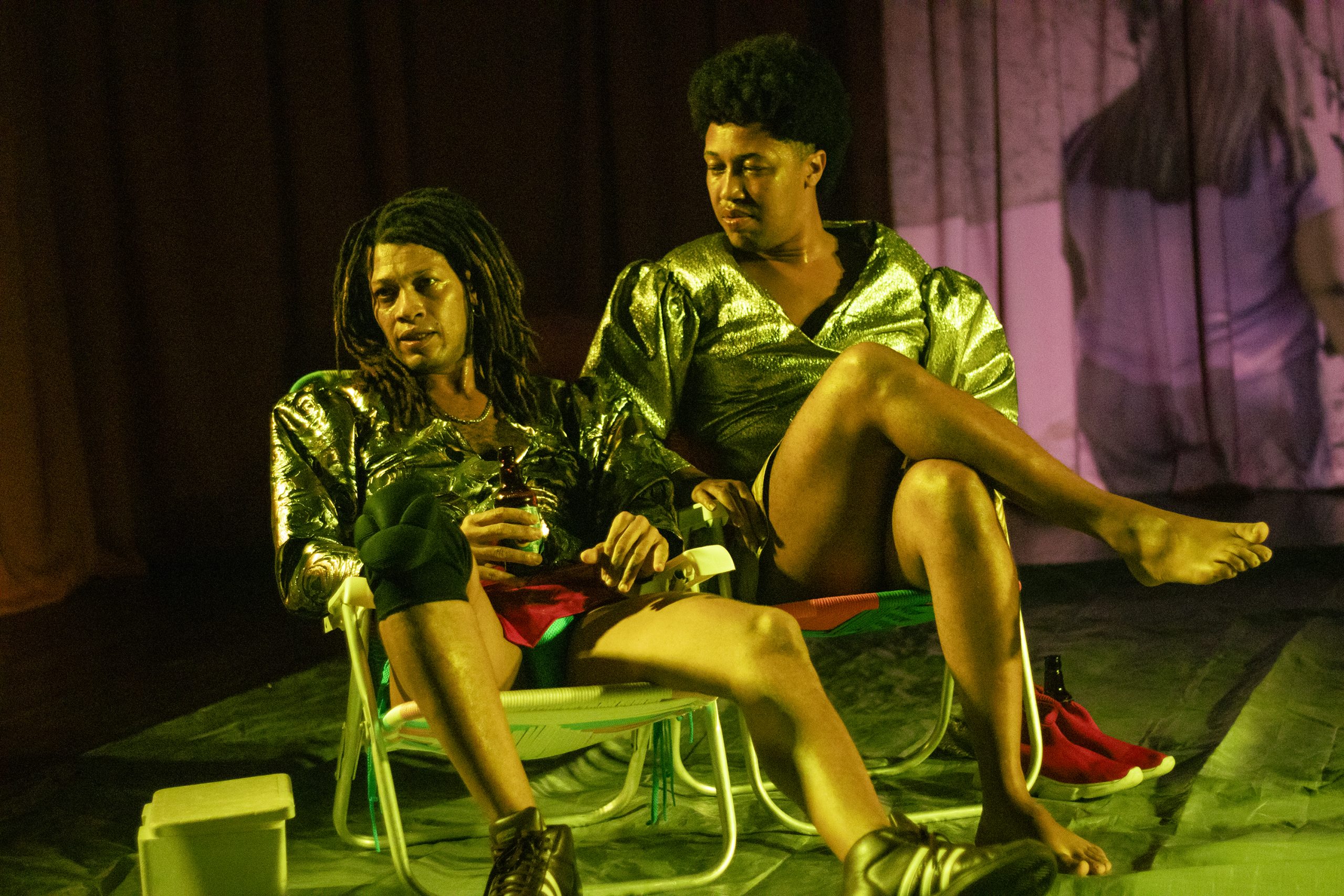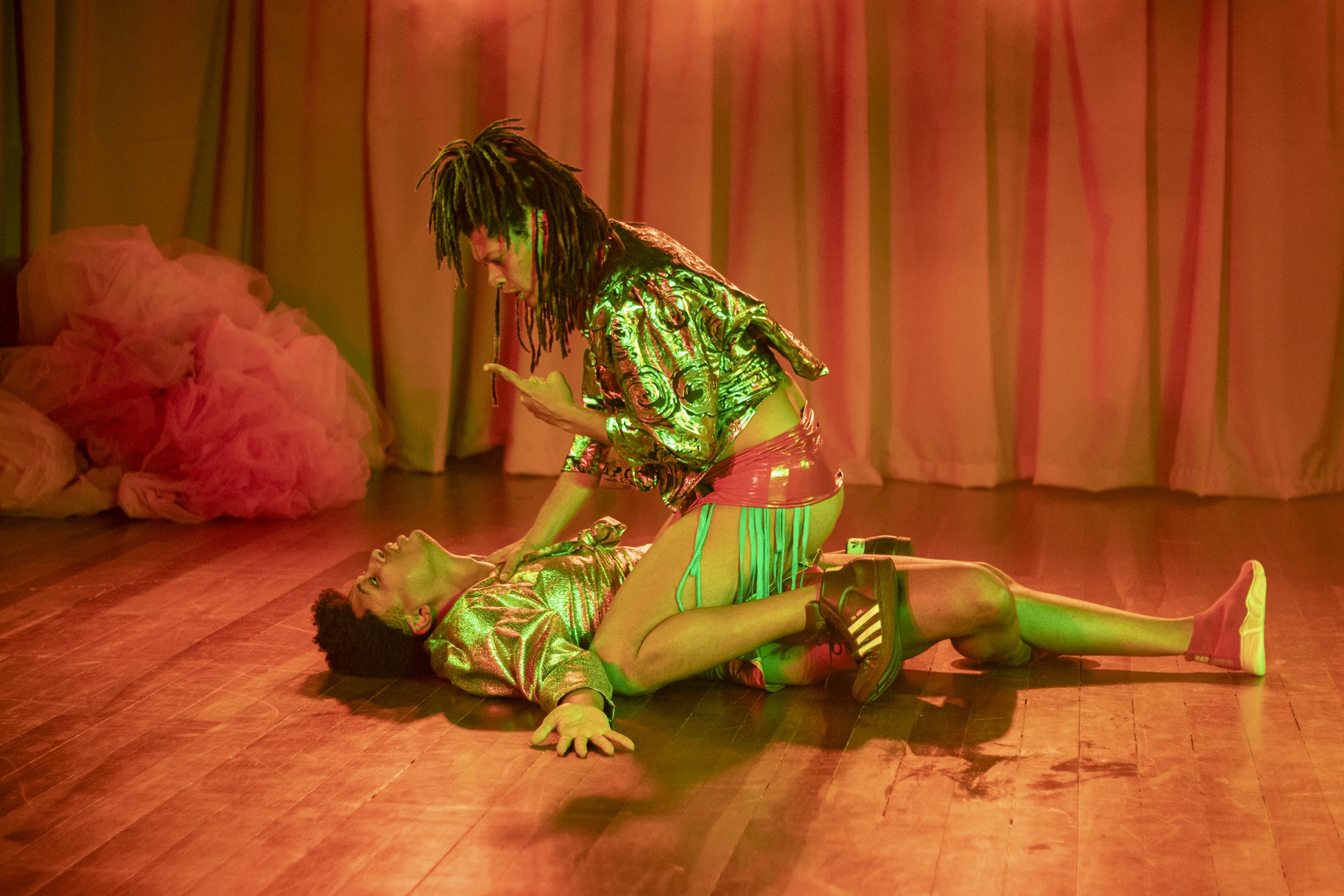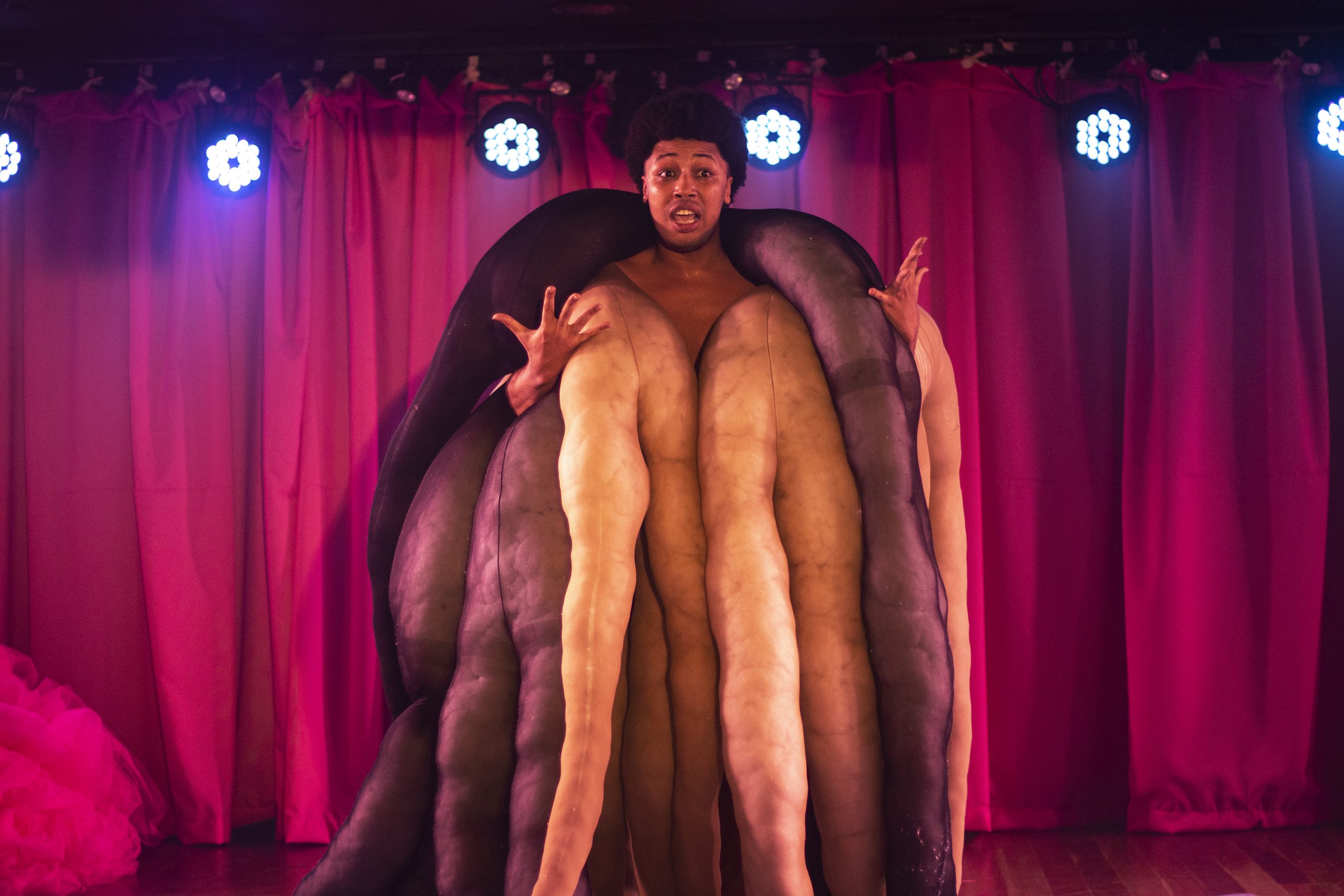
Through dance, music, audiovisual and many laughs, two Black queers stage the end of humanity. Set in 2040, as the post-human era begins, the play raises the questions: what is Complexo da Maré like then? How can their favela help rebuild the world?
The play Pacts to Reforest the Earth, showing at Rio de Janeiro’s SESC Copacabana Theater until August 10, begins with a mood of subtle eroticism and intense glances exchanged with the audience. Little by little, the performance becomes a whirlwind of sensations: captivating soundtrack, sharp criticism, and a breathtaking performance by Wallace Lino and Paulo Victor Lino, the Lino sisters, who call themselves “the pests” or, as they prefer, “the little pests.”
“It’s not about planting a tree, it’s about how to plant love and also about what not to plant… We wanted to create a play that overflowed with joy, not sadness.” — Desirée Santos, co-director
In 2040, in Maré, a group of favelas in the North Zone of Rio de Janeiro, the world is collapsing due to human intervention, bringing on floods, deforestation, and extreme weather events leading to the end of humanity. Despite this, in their neighborhood, Morro do Timbau, the Black, LGBTQIAPN+ Lino sisters keep on resisting. Accustomed to struggling in order to exist, they now ask themselves: how can we rebuild and reforest the world through affection, sisterhood, and the ancestral memories of family love that sustained them during the extinction of humanity?
Born in Northeast Brazil and raised in Maré, the artists stage their own lives: two deviant bodies that stand as part of the planet, not above it. With beer and beach chairs on a rooftop, Paulo Victor and Wallace inhabit a setting that moves between reflection and destruction, culminating in the reinvention of the world through the favela. In the post-human future they imagine, although humanity has come to an end, the Earth remains alive—with the possibility of reinvention and, therefore, new ways of living.

They dance, fight, laugh, tease each other, die and are reborn. Every gesture pushes back against colonial logic, normativity and the violence that insists on erasing bodies like theirs. The play’s language is as plural as its emotions. Between Portuguese, Spanish, French and an invented language (taught to the public right there and then), communication becomes a collective act, with active audience participation.

Laughs come easily with jokes about zodiac signs or being addicted to Grindr (a gay dating app), but soon take an emotional turn as the Lino sisters evoke the women who shaped them: their born-again mother, their cousins, and their “indecent” aunt from Parque União—labeled as such by neighbors because she liked to drink. These women were central figures who gave the duo affection and freedom from a young age. The scenes are emotionally charged. The actors themselves admit it’s difficult to perform certain moments from their lives. Still, they state that staging these painful experiences is essential to dramatizing their journeys within this dystopian, Afrofuturist version of Maré.
Between laughter, flashy costumes, and strong interactions with the audience, the production develops themes such as the negligence of Indigenous knowledge and the lack of human connection with the Earth, which is treated only as a resource to be exploited and poisoned. The play also invites the public, by means of an LGBTQIAPN+ favela perspective, to think about this new construction, to imagine possible futures.

As the play comes to an end, it is difficult to leave without wanting to search for names, stories, and memories that already reforested love long before the collapse of humanity—people who took a stand against homophobia and human rights violations.
At a certain point in the play, Paulo Victor brings to life João Francisco dos Santos, a feared and openly gay malandro who became an LGBT+ icon in the 20th century. A legendary figure in Rio de Janeiro’s bohemian scene, Madame Satã—as he was known—shone on downtown stages and boldly challenged cisheteronormative standards.

“It’s not about what we lack, it’s about what we have,” emphasizes Wallace as he encourages Paulo Victor’s performance of Madame Satã. And, at the end of the homage, he poetically completes: “Madame Satã needed to be the breeze so that we could be the wind.”
“It’s a powerful play, coming from a place that people usually discredit, but that has so much to offer—with videos, bodily presence, and spoken lines that get the message across in a light way.” — Kevin Santos, 27, audience member
Pacts to Reforest the Earth is currently showing at SESC Copacabana Theater, from Thursday to Sunday at 7pm, until August 10. There is a guest list for trans people, which guarantees them free entry to the play. To access the free ticket, trans audience members should contact Entidade Maré via social media. Other audience members can purchase tickets directly at the theater’s box office: R$30 (~US$5.50) full price, R$15 half price (~US$2.75), and R$10 (~US$1.80) for SESC members.
The play is the result of three years of research by brothers Wallace and Paulo Victor Lino, produced by Entidade Maré and directed by Desirée Santos and Renato Linhares.
About the author: Karen Fontoura is a journalism student at the Federal University of Rio de Janeiro (UFRJ), a resident of Rocinha, and a reporter for the community newspaper Fala Roça, where she coordinates the organization’s institutional and project communications. She works with audiovisual production, reporting, and the promotion of community initiatives.




